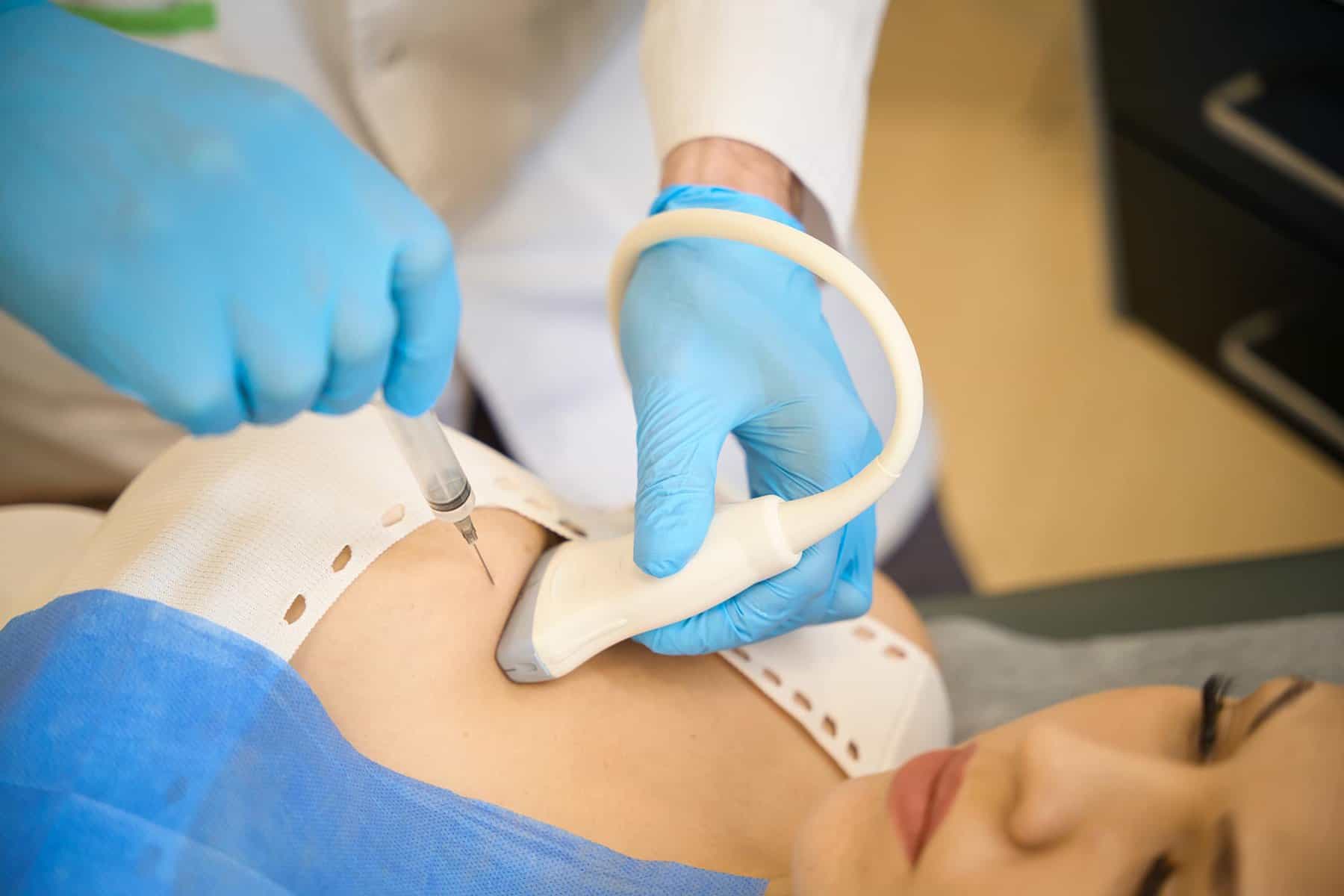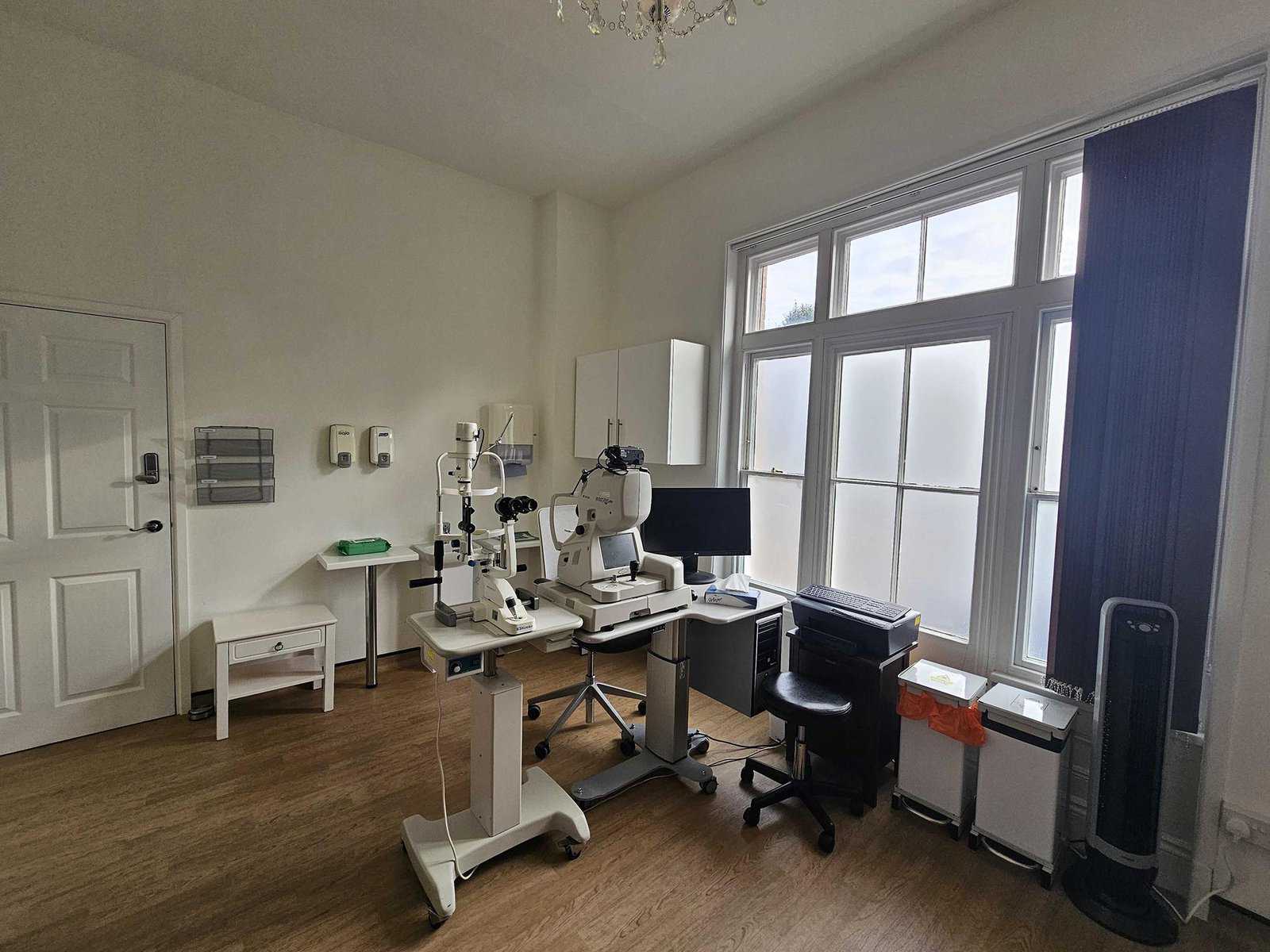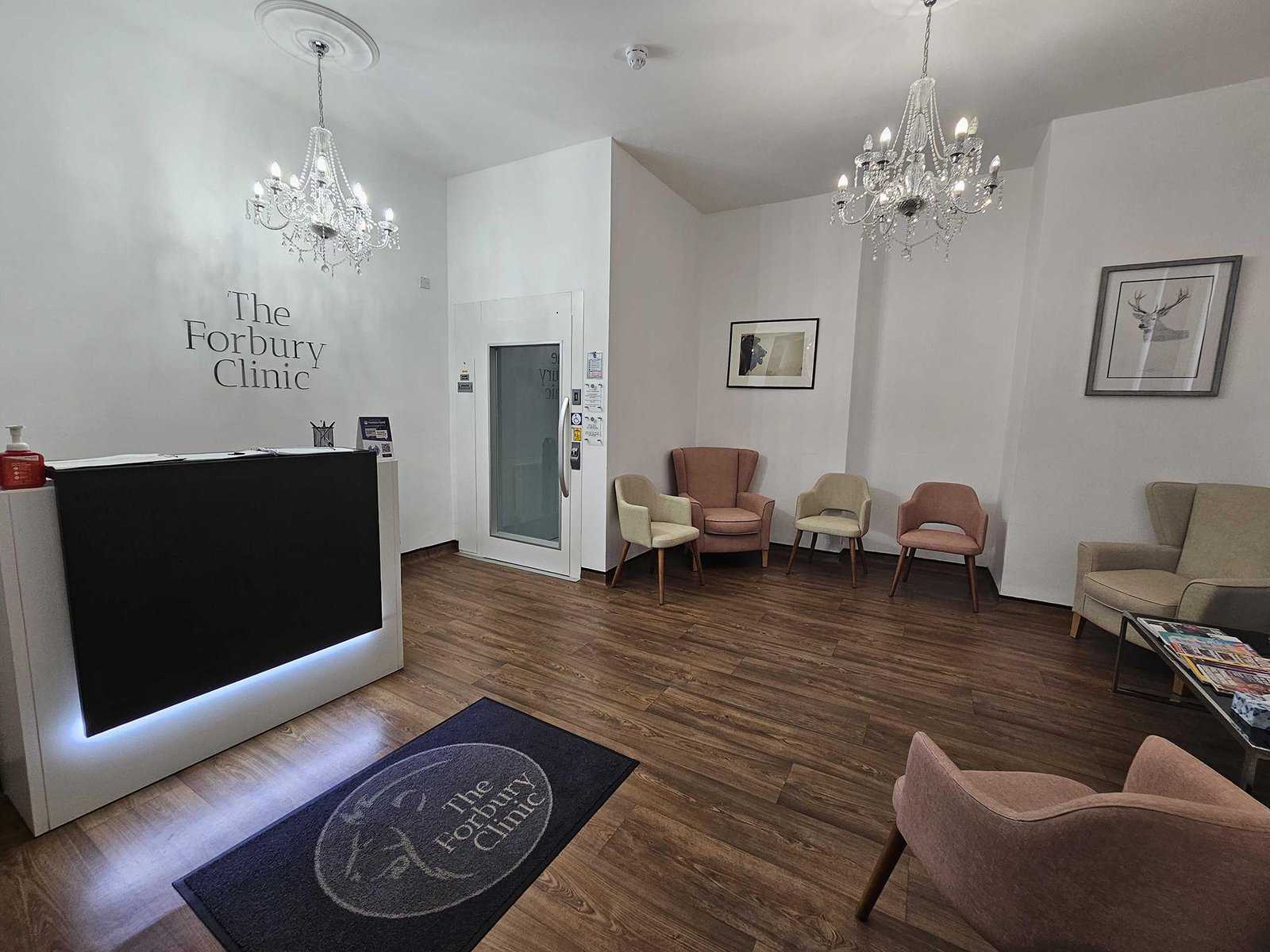Advanced Image Guided Biopsy
Ensure precise diagnosis with advanced image-guided biopsy at The Forbury Clinic. Submit an enquiry for a consultation and access our state-of-the-art imaging services.

Overview of Image Guided Biopsy
An image-guided biopsy is a minimally invasive procedure used to obtain tissue samples from suspicious areas in the body, guided by advanced imaging techniques such as ultrasound, CT, or MRI. This procedure is crucial for accurately diagnosing various conditions, including cancers and infections. Early and accurate diagnosis is essential for effective treatment and improved outcomes. At The Forbury Clinic, we specialise in providing advanced image-guided biopsy services with a focus on patient comfort and precise results. Contact us today to learn more and schedule a consultation.


What is Image-Guided Biopsy?
An image-guided biopsy is a diagnostic procedure that uses imaging techniques to accurately locate and sample abnormal tissues or lesions in the body. Common imaging modalities used include ultrasound, CT scans, and MRI. During the procedure, a needle is guided to the target area using real-time imaging, allowing for precise tissue sampling with minimal disruption to surrounding tissues. This method is commonly used to diagnose cancers, infections, and other conditions affecting organs such as the liver, lungs, kidneys, and breasts. Symptoms indicating the need for an image-guided biopsy include persistent lumps, abnormal imaging findings, and unexplained symptoms that require tissue analysis for accurate diagnosis.
Causes and Risk Factors
Image-guided biopsy helps identify the underlying causes and risk factors of various conditions:
Causes
Cancer:
Abnormal growths or tumors that need to be examined for malignancy.
Infections:
Persistent or unexplained infections that require tissue analysis to identify the causative agent.
Inflammatory Conditions:
Chronic inflammation that needs to be evaluated for accurate diagnosis and treatment planning.
Genetic Disorders:
Abnormalities detected in organs or tissues that may indicate genetic conditions.
Risk Factors
Family History:
A family history of cancer or genetic disorders increases the likelihood of needing a biopsy.
Age:
Older adults are more likely to develop conditions requiring biopsy.
Lifestyle Factors:
Smoking, alcohol use, and exposure to certain chemicals increase the risk of developing abnormal tissues that need evaluation.
Understanding these causes and risk factors helps in the early diagnosis and effective management of various conditions, improving patient outcomes.
Diagnosis
Diagnosing conditions at The Forbury Clinic involves a thorough evaluation using image-guided biopsy. The diagnostic process includes:
- Initial Consultation: Discussing your symptoms, medical history, and risk factors with a specialist to determine the need for an image-guided biopsy.
- Preparation: Providing instructions on how to prepare for the biopsy, including fasting and medication guidelines.
- Imaging Procedure: Depending on the area of concern, the appropriate imaging technique (ultrasound, CT scan, or MRI) will be used to guide the biopsy needle to the target tissue. The procedure typically lasts 30 to 60 minutes.
- Tissue Sampling: A small tissue sample is collected using a needle, guided by real-time imaging to ensure accuracy.
- Analysis: The collected tissue sample is sent to a pathology lab for detailed analysis.
- Reporting: Detailed reports are shared with your referring physician, who will discuss the findings and potential next steps, such as additional tests or treatment options.
These steps ensure a thorough and accurate diagnostic process, aiding in effective treatment planning.

Treatment Options
Based on the findings from the image-guided biopsy, various treatment options may be considered to address the diagnosed condition:
- Non-Surgical Treatments
- Surgical Options
- Innovative Treatments
Medications:
Prescribing medications to treat infections, inflammation, or other identified conditions.
Radiation Therapy:
Using targeted radiation to treat cancerous tissues.
Chemotherapy:
Administering drugs to kill cancer cells, often used for malignant tumors identified through biopsy.
Surgical Resection:
Removing cancerous or abnormal tissues identified through biopsy.
Minimally Invasive Surgery:
Using laparoscopic techniques to remove or treat affected areas with minimal recovery time.
Immunotherapy:
Boosting the immune system to fight cancer or other diseases.
Targeted Therapy:
Using drugs that specifically target cancer cells identified through biopsy.
Cryoablation:
Freezing cancerous tissues to destroy them, guided by imaging techniques.
At The Forbury Clinic, our multidisciplinary team ensures that each patient receives the most appropriate and effective treatment, tailored to their specific needs and health goals.
Managing Post-Biopsy Care
Managing post-biopsy care involves a combination of medical follow-up and lifestyle adjustments to ensure proper healing and monitor for any complications. At The Forbury Clinic, we provide comprehensive care and guidance to help manage post-biopsy recovery:
Follow-Up Appointments:
Scheduling regular follow-up visits to monitor healing and discuss biopsy results.
Medication Adherence:
Taking prescribed medications as directed to manage pain and prevent infection.
Wound Care:
Providing instructions on how to care for the biopsy site to promote healing and prevent complications.
Monitoring Symptoms:
Keeping track of any new or worsening symptoms and reporting them to your healthcare provider.
These management strategies aim to complement medical treatments and provide a holistic approach to improving recovery and overall well-being.
Complications and Prognosis
While image-guided biopsy is a highly effective diagnostic tool, it is important to be aware of potential complications and the prognosis for untreated conditions:
Complications:
- Infection: Risk of infection at the biopsy site, which can be managed with proper wound care and antibiotics.
- Bleeding: Minor bleeding or bruising at the biopsy site, usually resolves on its own.
- Pain: Mild pain or discomfort at the biopsy site, manageable with over-the-counter pain relievers.
Prognosis
The prognosis for patients undergoing image-guided biopsy largely depends on the underlying condition and the effectiveness of the treatment plan. With timely diagnosis and appropriate treatment, many individuals can achieve significant improvements in health and quality of life. Regular follow-ups and ongoing management are crucial to prevent complications and maintain optimal health.


Why Choose The Forbury Clinic?
Choosing The Forbury Clinic for your image-guided biopsy and subsequent care ensures you receive exceptional care from a team of experienced specialists. Our clinic is renowned for its expert medical staff who are dedicated to diagnosing and treating conditions with precision and compassion. We use state-of-the-art diagnostic tools and the latest medical advancements to provide accurate diagnoses and innovative treatments tailored to your specific needs. Our patient-centered approach prioritises your comfort, privacy, and overall well-being, offering comprehensive support throughout your health journey. At The Forbury Clinic, you can trust that you are in capable hands, with a dedicated team committed to helping you achieve optimal health and a better quality of life.
